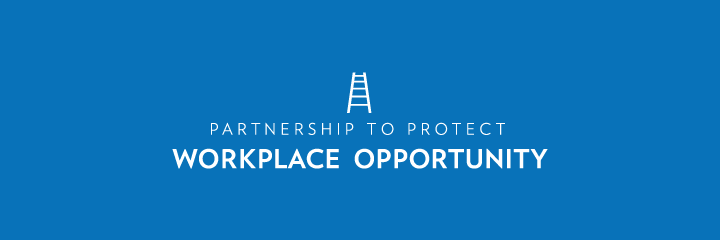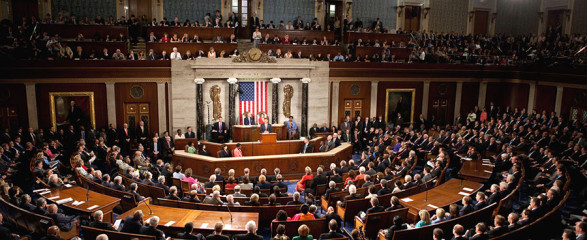On September 25, 2023, PPWO and 107 employer organizations submitted an extension request to the Department of Labor requesting an additional 60 days to the comment period on the agency’s proposed rulemaking altering the overtime pay regulations under the Fair Labor Standards Act. Our letter explains, “Given the magnitude of this rule, an additional sixty days is reasonable and will ensure WHD will receive meaningful information, such as more accurate and informative comments, and better understand how the economy and workers will be impacted by the changes being considered.”
The rulemaking imposes a significant increase to the minimum salary threshold and automatically increases the threshold every three years. “These are significant changes that will have a massive impact on the economy and millions of current and future workers. Additional time is needed in the comment period to allow the regulated community to analyze the rulemaking, fully assess the potential impact the changes will have on the economy, business operations, and workers, and develop comprehensive comments.”
On August 30, 2023, the Department of Labor issued its notice of proposed rulemaking altering the overtime pay regulations under the Fair Labor Standards Act. The proposal increases the minimum salary threshold and automatically updates the threshold every three years.
“We’re disappointed DOL has decided to move forward despite repeated requests from PPWO and the regulated community to abandon or at least delay the rulemaking until the economy stabilizes,” said Josh Ulman, spokesman for the Partnership to Protect Workplace Opportunity. “Right now, we’re still recovering from the COVID-19 pandemic’s impact as we face continued inflationary pressure as well as a cooling job market.
“DOL is proposing a nearly 55% increase to the minimum salary threshold. Massive increases in labor costs like this simply cannot be absorbed by businesses. Meanwhile, automatic increases are unlawful and will set up the economy for failure, as increases will occur regardless of economic circumstances, exacerbating any problems that may exist.
“This rulemaking will lead to a substantial reduction in access to entry level executive, administrative, and professional salaried positions. It will reduce opportunities, especially for recent graduates and younger professionals hoping to begin their careers.
“All in all, this is poorly timed and will do harm to those it intends to help.”
On May 21st, the Partnership to Protect Workplace Opportunity submitted comments to the U.S. Department of Labor responding to the proposed rulemaking that was issued on March 22, 2019.
On August 22nd, the Partnership to Protect Workplace Opportunity submitted comments to Pennsylvania’s Department of Labor and Industry responding to the proposed rulemaking that was issued on June 23, 2018.
On September 25, the Partnership to Protect Workplace Opportunity submitted comments to the Department of Labor responding to the Request for Information that was published in the federal register on July 26, 2017.
On June 16th, the Partnership to Protect Workplace Opportunity sent a letter to Secretary of Labor Alexander Acosta congratulating him on his recent confirmation as well as reiterating concern with the salary threshold update.

A statement from the Partnership to Protect Workplace Opportunity (PPWO) about the Labor Department’s final overtime rule:
The public record surrounding the rule is filled with comments, economic analysis, letters from Congress, and meetings and phone calls urging the administration to reconsider its proposal and more carefully examine the potential impact before proceeding. We are deeply disappointed that the Labor Department largely ignored the concerns of tens of thousands of individuals and organizations across this country that expressed concern with the proposal. The final rule increases the salary threshold for overtime eligibility to $47,476 – instead of the $50,440 figure originally proposed. However, this token reduction in the salary threshold is still a 100% increase that will take place all at once in December. Employers will not be able to absorb this increase, particularly in such a short time frame, and DOL’s token reduction will not alleviate the harm this rule will do to these small businesses, nonprofits, colleges and universities, and local governments across the country, their employees and the people and communities that they serve.
Employees and employers – many of which are still unaware of this rule – will be hit hard when it is implemented. Costs will soon increase for organizations operating on fixed budgets, forcing them to cut critical programming, staffing, and services. Millions of employees across the country will be reclassified from salaried to hourly workers and begin experiencing reduced opportunity and flexibility in the workplace. Further, the rule’s automatic increases ignore wider economic variables or the reality of organizations and their specific budgetary constraints. These automatic updates threaten to impose serious hardships on public and private sector employers and employees without regard to economic circumstance of the time, which will have damaging consequences for the communities they serve.
While the nation’s overtime rules should be updated, today’s final rule will do serious damage to people’s careers and workplace flexibility, new job opportunities and essential community services. We will continue to advocate for a regulation that is considerate of all stakeholder and economic realities facing employers and employees across the country. We urge Members of Congress to support the Protecting Workplace Advancement and Opportunity Act.
– Lisa Horn, PPWO spokesperson and director of congressional affairs at the Society for Human Resource Management.

On April 14, the St. Louis Chapter of the Asthma and Allergy Foundation of America sent a letter to Senator McCaskill (D-MO) expressing deep concern with the Labor Department’s Overtime proposal.
The non-profit which serves the greater St. Louis area and provides children with asthma and allergies life-saving medications, equipment, and support expects the Overtime rule changes to devastate their budget and harm their ability to provide essential services to their community.
As such, the chapter urges Senator McCaskill to support S. 2707, the Protecting Workplace Advancement and Opportunity Act which will block the rule and require the Department of Labor to first conduct a comprehensive economic analysis on the impact of mandatory overtime expansion to small businesses, nonprofits, and public employers before issuing a similar rule.
You can read the letter here.